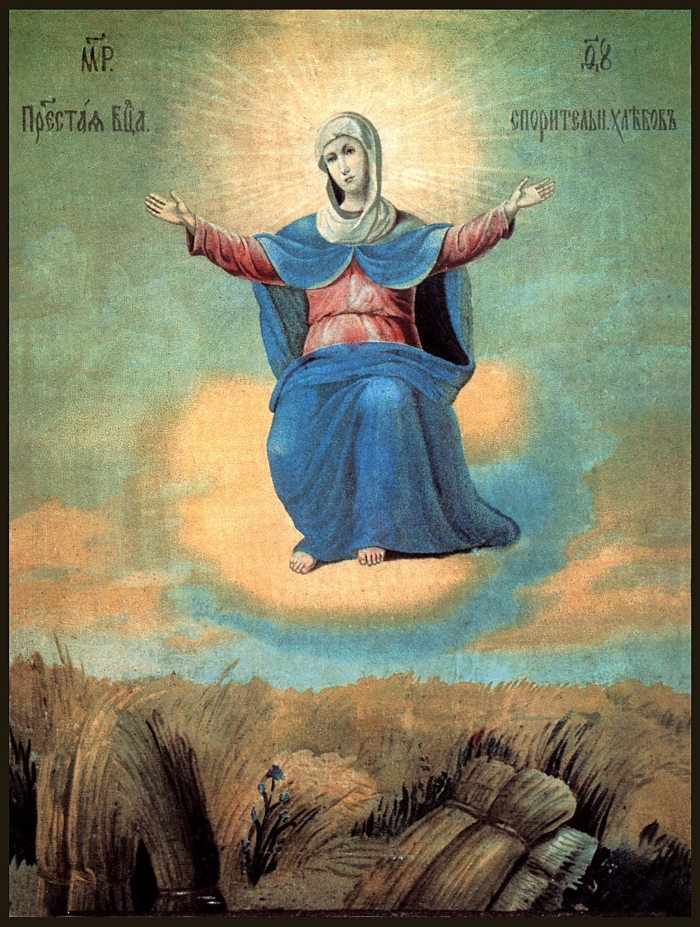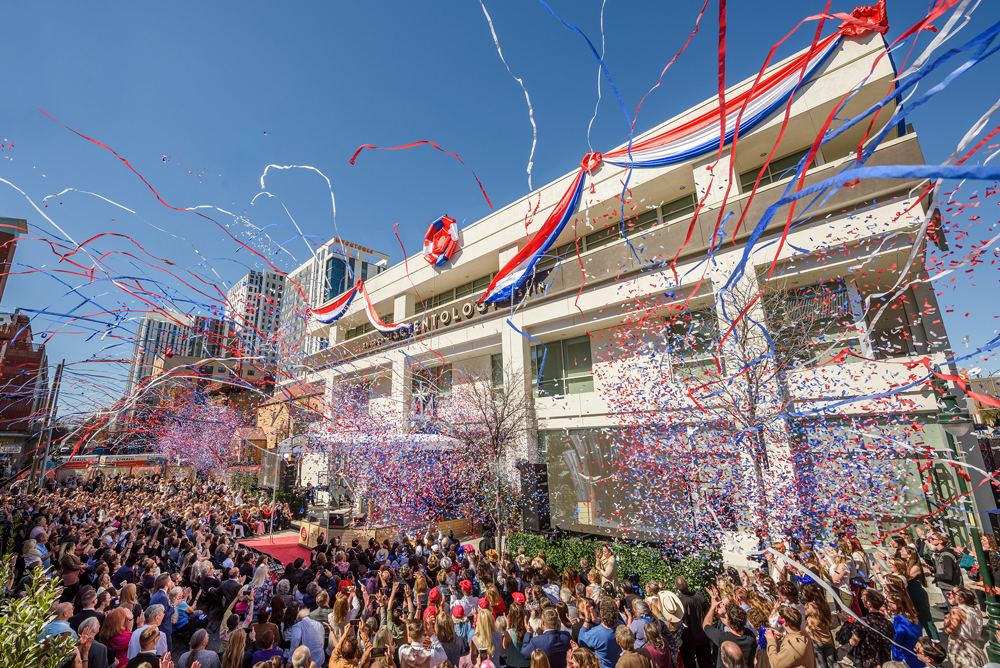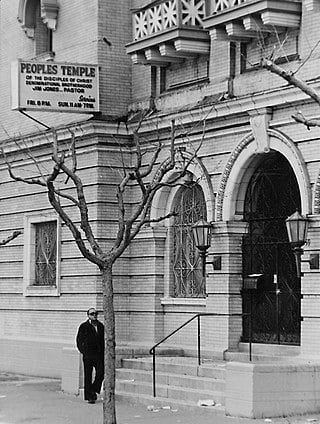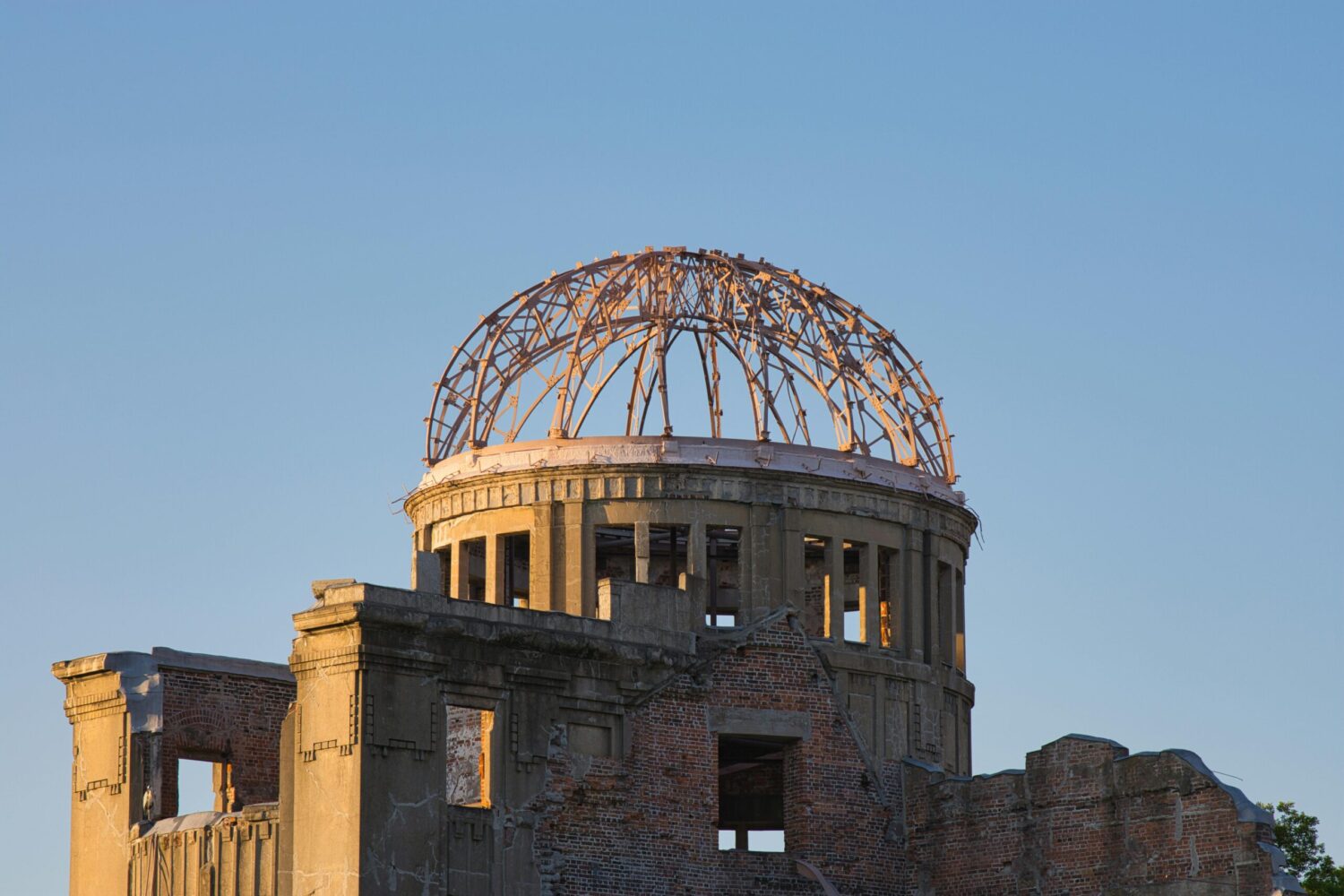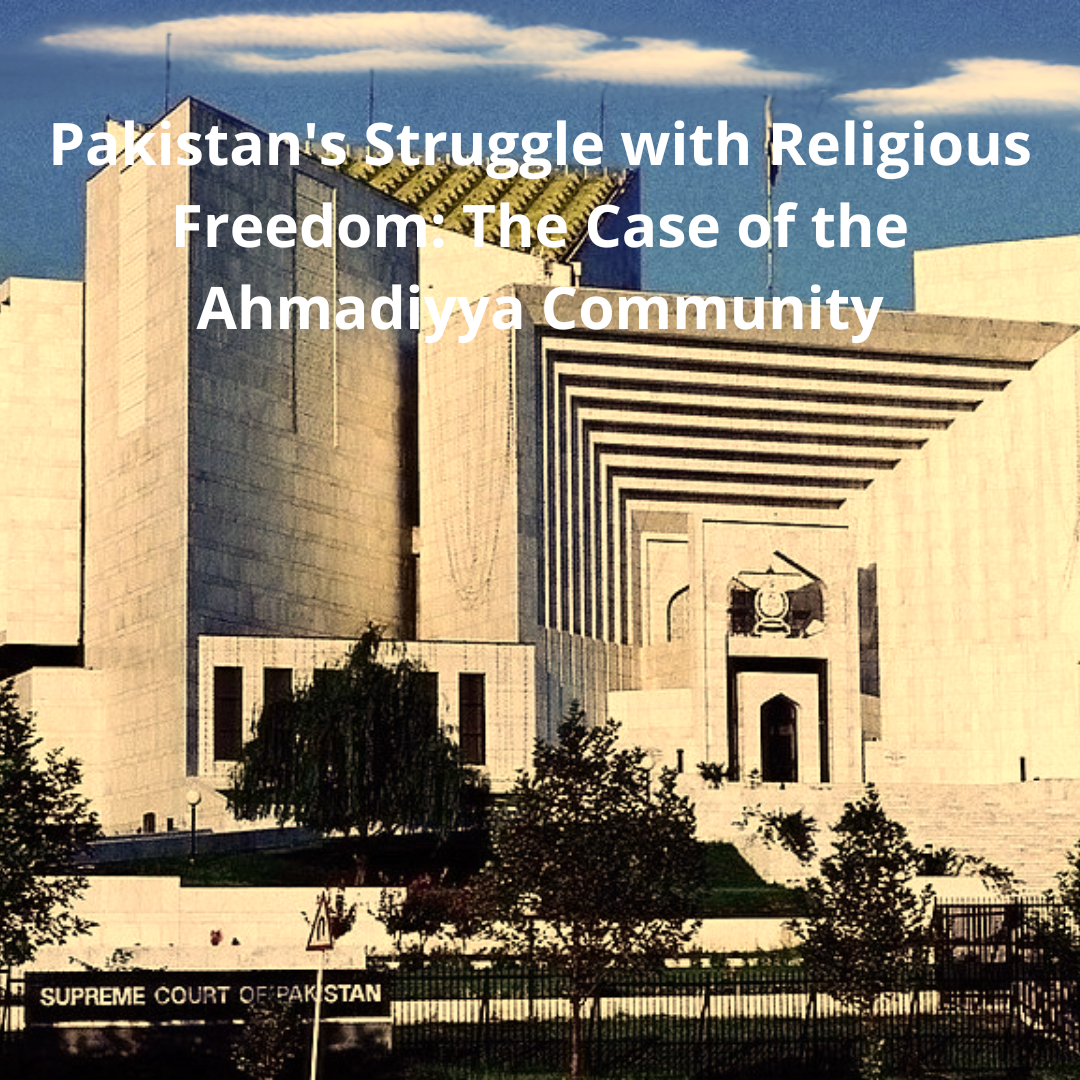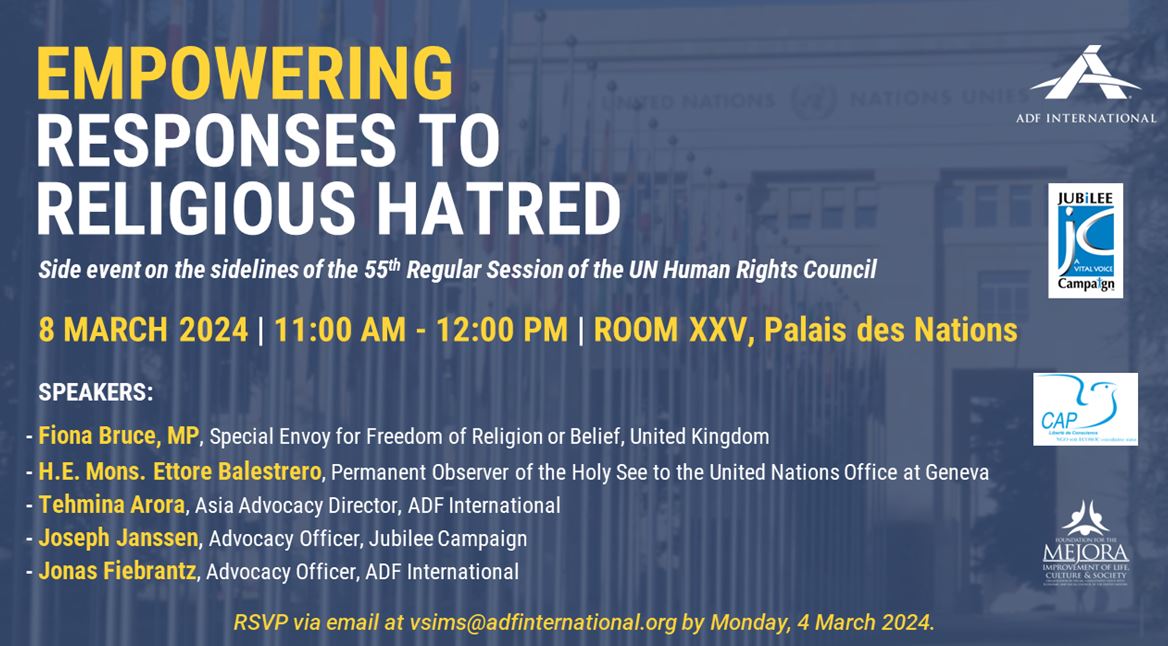By St. Nicholas Kavasila, From “Three sermons on the Virgin”
The remarkable Hesychast author of the 14th century St. Nicholas Kavasila (1332-1371) dedicates this sermon to the Annunciation of the Holy Mother of God, revealing before us the Byzantine man’s view of the Mother of God. A sermon filled not only with ardent religious feeling, but also with deep dogmatics.
On the Annunciation of Our Blessed Lady and the Blessed Virgin Mary (Three Theotokos)
If man should ever rejoice and tremble, sing with thanksgiving, if there is a period that requires man to desire the greatest and the best, and makes him strive for the widest possible connection, the most beautiful utterance, and strongest word to sing his majesty, I do not see who else it can be but today’s feast. Because it was as if today an Angel came from heaven and heralded the beginning of all good things. Today the sky is magnified. Today the earth rejoices. Today all creation rejoices. And beyond this feast He who holds the sky in His hands does not remain. Because what is happening today is a real celebration. All meet in it, with equal joy. All live and give us the same joy: the Creator, all creations, the very mother of the Creator, who provided our nature and thus made Him partaker of our joyous gatherings and festivals. Above all, the Creator rejoices. Because he is a benefactor from the beginning, and from the beginning of creation, his work is to do good. He never needs anything and knows nothing but to give and benevolent. Today, however, without stopping His saving work, He passes in second place and comes among those who are favored. And he rejoices not so much for the great gifts that He bestows on creation and that reveal His generosity, but for the small things that He received from the favored, for thus it is clear that He is a lover of mankind. And He thinks that He is glorified not only by those things which He Himself gave to the poor slaves, but also by those which the poor gave Him. For even if He chose diminution over the divine glory and agreed to accept as a gift from us our human poverty, His wealth remained unchanged and turned our gift into an ornament and a kingdom.
For creation also—and by creation I mean not only that which is visible, but also that which is beyond the human eye—what could be a greater occasion of thanksgiving than to see its Creator coming into it and the Lord of all to take a place among the slaves? And this without emptying Himself of His authority, but becoming a slave, not rejecting (His) wealth, but giving it to the poor, and without falling from His heights, exalts the humble.
The Virgin also rejoices, for whose sake all these gifts were given to men. And he is happy for five reasons. Above all, as a person who participates, like everyone else, in the common goods. However, she also rejoices because the goods were given to her even before, even more perfect than to others, and even more because she is the reason that these gifts are given to everyone. The fifth and greatest reason for the Virgin’s rejoicing is that, not merely through her, God, but herself, thanks to the gifts which she knew and first saw, brought the resurrection of men.
2. For the Virgin is not like the earth, which formed man, but itself did nothing for his creation, and which was used as simple material by the Creator and simply “became” without “doing” anything. The Virgin realized in herself and gave to God all those things which attracted the Creator of the earth, which prompted His creative hand. And what are these things? Life blameless, life pure, denial of all evil, exercise of all virtues, soul purer than light, body perfect spiritual, brighter than the sun, purer than heaven, holier than cherubic thrones. A flight of the mind that does not stop before any height, that surpasses even the wings of angels. A divine eros that has swallowed up every other desire of the soul. God’s land, oneness with God that accommodates no human thought.
Thus, adorning her body and soul with such virtue, she was able to attract the gaze of God. Thanks to her beauty, she revealed a beautiful common human nature. And beat the trickster. And he became man because of the Virgin, who was hated among men because of sin.
3. And the “wall of enmity” and the “barrier” meant nothing to the Virgin, but all that separated mankind from God was done away with as far as she was concerned. Thus, even before the general reconciliation between God and the Virgin, peace reigned. Moreover, she had no need ever to make sacrifices for peace and reconciliation, for from the beginning she was first among friends. All these things happened because of others. And he was the Intercessor, “was an advocate for us before God,” to use Paul’s expression, lifting up to God for men not his hands, but his very life. And the virtue of one soul was sufficient to stop the evil of men of all ages. As the ark saved man in the general flood of the universe, did not take part in the calamities and saved the human race the possibility to continue, the same thing happened to the Virgin. She always kept her thought as untouched and holy, as if no sin had ever touched the earth, as if all remained true to what they ought, as if all still dwelt in paradise. He didn’t even feel the evil that was spilling over the whole earth. And the flood of sin, which spread everywhere and closed heaven, and opened hell, and dragged men into war with God, and expelled the Good from the earth, leading in His place the wicked, did not even touch the blessed Virgin a little. And while it ruled over the whole universe and disturbed and destroyed everything, evil was defeated by a single thought, by a single soul. And not only was it conquered by the Virgin, but thanks to her sin departed from the whole human race.
This was the Virgin’s contribution to the work of salvation, before the day came when God should, according to His eternal plan, bend the heavens and descend to the earth: from the moment she was born, she was building a shelter for Him who could to save man, he strove to make God’s abode beautiful, itself, so that it would be worthy of Him. Thus nothing was found to reproach the king’s palace. Moreover, the Virgin not only presented Him with a royal dwelling worthy of His majesty, but also prepared for Him of Herself a royal garment and a girdle, as David says, “benevolence,” “strength,” and “the kingdom” itself. As a splendid state, which surpasses all others in its size and beauty, in its high ideal and number of its inhabitants, in wealth and power, does not confine itself to receiving the king and rendering him hospitality, but becomes his country and power , and honor, and strength, and arms. So also the Virgin, receiving God in herself and giving Him her flesh, made it so that God appeared in the world and became for enemies an indestructible defeat, and for friends salvation and the source of all good things.
4. In this way she benefited the human race even before the time of general salvation came: But when the time came and the heavenly messenger appeared, she again took an active part in salvation by believing his words and consenting to accept the ministry, what God asked of her. Because this too was necessary and unquestionably necessary for our salvation. If the Virgin had not behaved like this, there would have been no hope left for humans. As I said earlier, it would not have been possible for God to look with favor on the human race and wish to come down to earth, if the Virgin had not prepared herself, if she was not there who was to welcome Him and who could serve for salvation. And again, it was not possible for the will of God to be fulfilled for our salvation if the Virgin had not believed in it and if she had not agreed to serve him. This becomes visible from the “rejoice” that Gabriel said to the Virgin and from the fact that he called her “gracious”, with which he ended his mission, revealed the whole secret. However, while the Virgin wanted to understand the way in which the conception would take place, God did not come down. While the moment she was convinced and accepted the invitation, the whole work was immediately accomplished: God took upon Himself as a garment man and the Virgin became the mother of the Creator.
Even more amazing is this: God neither warned Adam nor persuaded him to give his rib from which Eve was to be created. He put him to sleep and thus, taking away his senses, took away his part. Whereas, in order to create the New Adam, He taught the Virgin in advance and awaited her faith and acceptance. In the creation of Adam, He again consults His only begotten Son, saying, “We have made man.” But when the firstborn was to “enter,” that “wonderful Counselor” “into the universe,” as Paul says, and create the second Adam, he took the Virgin as his co-worker in his decision. Thus that great “decision” of God, of which Isaiah speaks, was announced by God and confirmed by the Virgin. Thus the Incarnation of the Word was the work not only of the Father, who “favored,” and of His Power, who “overshadowed,” and of the Holy Spirit, who “indwelled,” but also of the desire and faith of the Virgin. Because without them it was not possible to exist and to propose to people the solution for the incarnation of the Word, likewise without the desire and faith of the Pure One it was impossible for God’s solution to be realized.
5. After God had thus guided and persuaded her, He then made her His mother. Thus the flesh was given by a man who wanted to give it and knew why he was doing it. Because the same thing that happened to Him was to happen to the Virgin. As He willed and “came down”, so she was to conceive and become a mother, not under compulsion, but with all her free will. For she had – and this is much more important – not only to participate in the construction of our salvation as something moved from without, which is simply used, but to offer herself and become God’s co-worker in the care of the human race so, that she might have a share with Him and be a partaker of the glory that arose from this love of humanity. Then, since the Savior was not only a man in the flesh and a son of man, but also had a soul, and mind, and will, and everything human, it was necessary to have a perfect mother who would serve His birth not only with the nature of the body, but also with mind and will, and her whole being: to be a mother both in flesh and in soul, to bring the whole person into the unspoken birth.
This is the reason why the Virgin, before giving herself to the service of God’s mystery, believes, wants and wishes to fulfill it. But this also happened because God wanted to make visible the virtue of the Virgin. That is to say, how great was her faith and how high was her way of thought, how unaffected was her mind and how great was her soul—things which were revealed by the way in which the Virgin received and believed the paradoxical word of the Angel: that God would come indeed on earth and will personally see to our salvation, and that she will be able to serve, taking an active part in this work. The fact that she first asked for an explanation and was convinced is a shining proof that she knew herself very well and saw nothing greater, nothing more worthy of her desire. Moreover, the fact that God wished to reveal her virtue proves that the Virgin knew very well the greatness of God’s goodness and humanity. It is clear that precisely because of this she was not directly enlightened by God, so that it would be fully discovered that her faith, by which she lived close to God, was a voluntary expression of hers, and that they would not think that everything that happened was the result of the power of the persuasive God. For as those who believe who have not seen and believed are more blessed than those who want to see, so also those who have believed the messages which the Lord sent them through his servants have more jealousy than those who had He needed to convince them personally. The consciousness that she had nothing in her soul unfit for the sacrament, and that her temper and customs were perfectly suited to it, so that she did not mention any human frailty, nor doubt how all this would come to pass, nor discuss at all the ways which would have led her to purity, nor did she need a secret guide—all these things I do not know whether we may consider them to belong to created nature.
For even if he were a cherub or a seraphim, or something much purer than these angelic creatures, how could he bear that voice? How could he think it possible to do what he was told? How would she find strength sufficient for these mighty deeds? And John, than whom “there was none greater” among men, according to the estimation of the Savior Himself, did not think himself worthy to touch even His shoes, and that, when the Savior appeared in poor human nature. Until the Immaculate One dared to take in her womb the very Word of the Father, the very hypostasis of God, before it had yet diminished. “What am I and my father’s house? Will you save Israel through me, Lord?” These words you may hear from the righteous, although they have been called many times to deeds and many have performed them. While the angel called upon the blessed Virgin to do something quite unusual, something that was not in accordance with human nature, that exceeded logical understanding. And indeed, what else did she ask but to raise the earth to the sky, to move and change, using herself as a means, the universe? But her mind was not disturbed, nor did she think herself unworthy of this work. But as nothing disturbs the eyes when light approaches, and as it is not strange for someone to say that as soon as the sun rises it is day, so the Virgin was not at all confused when she understood that she would be able to receive and conceive the unfit in all places God. And he did not let the words of the angel pass unexamined, nor was he carried away by the many praises. But he concentrated his prayer and studied the salutation with all his attention, desiring to understand exactly the manner of the conception, as well as everything connected with it. But beyond that, she is not at all interested in asking whether she herself is capable and suitable for such a high ministry, whether her body and soul are so purified. He marvels at the miracles that surpass nature and overlooks everything related to her preparedness. Therefore, he asked for an explanation of the first from Gabriel, while she knew the second herself. The Virgin found the courage to God within herself, because, as John says, “her heart did not condemn her”, but “witnessed” to her.
6. “How will this be done?” she asked. Not because I myself need more purity and greater holiness, but because it is a law of nature that those who, like me, have chosen the path of virginity cannot conceive. “How will this happen, he asked, when I am not in a relationship with a man?” I, of course, she continues, am ready to accept God. I have prepared enough. But tell me, will nature agree, and in what way? And then, as soon as Gabriel told her about the way of the paradoxical conception with the famous words: “The Holy Spirit will come upon you and the power of the Most High will overshadow you”, and explained everything to her, the Virgin no longer doubts the angel’s message that she is blessed, both for those so wonderful things which she served, and for those in which she believed, viz., that she would be worthy to accept this ministry. And this was not the fruit of levity. It was a manifestation of the wonderful and secret treasure that the Virgin hid within herself, a treasure filled with supreme prudence, faith and purity. This was revealed by the Holy Spirit, calling the Virgin “blessed” – precisely because she accepted the news and did not find it difficult at all to believe the heavenly messages.
John’s mother, as soon as her soul was filled with the Holy Spirit, comforted her, saying: “Blessed is she who believes that the things which the Lord told her will come to pass.” And the Virgin herself said of herself, answering the Angel: “Here is the handmaid of the Lord.” For she is truly a servant of the Lord who so deeply understood the secret of what is to come. She who “as soon as the Lord came” immediately opened the home of her soul and body and gave Him who before her was truly homeless, a real abode among men.
At that moment something similar to what happened to Adam happened. While all the visible universe was created for his sake, and all other creatures had found their suitable companion, Adam alone did not find, before Eve, a suitable helpmate. So also for the Word, who brought all things into being, and assigned to every creature its proper place, there was no place, no abode before the Virgin. The virgin, however, did not give “sleep to her eyes, nor weariness to her eyelids” until she gave Him shelter and a place. For the words spoken by the mouth of David, we must consider as the voice of the Pure One, because he is the progenitor of her line.
7. But the greatest and most paradoxical thing of all is that, without knowing anything beforehand, without any warning, she was so well prepared for the sacrament that, as soon as God suddenly appeared, she was able to receive Him as she should – with a ready, awake and unwavering soul. All men were to know of her prudence, by which the blessed Virgin always lived, and how much higher than human nature she was, how unique, how greater than all that men could comprehend—she who kindled in her soul so strong a love for God, not because she had been warned of what was about to happen to her and in which she was about to take part, but because of the general gifts which were given or would be given by God to men. For as Job was favored not so much for the patience which he showed in his sufferings, as because he knew not what would be given him in recompense for this struggle of patience, so she showed herself worthy to receive the gifts which surpass human logic, because he did not know (about them beforehand). It was a marriage bed without waiting for the Bridegroom. It was the sky, although he did not know that the Sun would rise from it.
Who can conceive of this greatness? And what would she be like if she knew everything in advance and had the wings of hope? But why wasn’t she informed in advance? Perhaps because it thus makes it clear that there was nowhere else for her to go, since she had climbed all the peaks of holiness, and that there was nothing she could add to what she already had, nor could to become better in virtue, since she had reached the very top? For if there were such things and they were practicable, if there were but one more summit of virtue, the Virgin would know it, for that was the reason why she was born, and because God was teaching her, so that she might subdue that summit as well. , in order to be better prepared for the ministry of the sacrament. It was her ignorance that revealed her excellence—she who, though lacking the things that could impel her to virtue, so perfected her soul that she was chosen by the just God out of all human nature. Nor is it natural for God not to adorn His mother with all good things, and not to create her in the best and perfect manner.
8. The fact that He kept silent and told her nothing of what was about to happen, proves that He knew nothing better or greater than what He had seen the Virgin accomplish. And here again we see that He chose for His mother not just the best among other women, but the perfect one. She was not merely more suitable than the rest of the human race, but she was the one who was perfectly suited to be His mother. For doubtless it was necessary at one time for the nature of men to become fit for the work for which it was created. In other words, to give birth to a person who will be able to serve the Creator’s purpose worthily. We, of course, do not find it difficult to violate the purpose for which the various tools were created by using them for one activity or another. However, the Creator did not set a goal for human nature in the beginning, which he then changed. From the first moment he created her so that when she should be born, he would take her as a mother for Himself. And having originally given this task to human nature, he subsequently created man using this clear purpose as a rule. Therefore, it was necessary that a man should appear someday who could fulfill this purpose. It is not permissible for us not to regard as the purpose of man’s creation the best of all, the one who will give the Creator the greatest honor and praise, nor can we think that God can in any way fail in things, which he creates. This is certainly out of the question, since even masons and tailors and shoemakers manage to create their creations always according to the end they want, although they do not have complete control over matter. And although the material they use does not always obey them, although it sometimes resists them, they manage by their art to subdue it and push it to their goal. If they succeed, how much more natural is it that God should succeed, Who is not merely the ruler of matter, but its Creator, Who, when He created it, knew how He would use it. What could prevent human nature from conforming in all things to the purpose for which God created it? It is God who rules the household. And this is precisely His greatest work, the preeminent work of His hands. And its accomplishment He entrusted to no man or Angel, but kept it to Himself. Is it not logical that God takes more care than any other craftsman to observe the necessary rules in creation? And when it comes to not just anything, but the best of His creations? To whom else would God provide if not to Himself? And indeed Paul asks the bishop (who is, as is known, an image of God) before taking care of the common good, to arrange everything that has a connection with himself and his household.
9. When all these things happened in one place: the most just Ruler of the universe, the most suitable minister of God’s plan, the best of all the works of the Creator through the ages – how could anything necessary be lacking? Because it is necessary to preserve harmony and complete symphony in everything, and nothing should be inappropriate for this great and wonderful work. Because God is preeminently just. He Who created all things as they should, and “weigheth all things in the balances of His justice.” As an answer to all that God’s justice wanted, the Virgin, the only one fit for it, gave her Son. And she became the mother of the One to whom it was in all fairness to become a mother. And even if there was no other benefit from the fact that God became the son of man, we can argue that the fact that it was in all fairness that the Virgin should become the mother of God was sufficient to cause the incarnation of the Word. And that God cannot fail to give to each of his creatures what suits him, i.e. always acts according to his justice, this fact alone was a sufficient reason to bring about this new mode of existence of the two natures.
For if the Immaculate One observed all the things which she was bound to observe, if she revealed herself as a man so grateful that she missed nothing of what she owed, then how could God be just as fair? If the Virgin omitted none of those things which may reveal the mother of God, and loved Him with such intense love, that it would of course be perfectly incredible that God should not consider it His duty to give her an equal recompense, to become her Son. And let us say again, if God gives to evil masters according to their desire, how will He not take for His mother the one who always and in everything agreed with His desire? This gift was so kind and suitable for the blessed one. Therefore, when Gabriel clearly told her that she would give birth to God Himself – for this was made clear by his words, that the One who would be born “shall reign over the house of Jacob forever, and his kingdom will have no end” and the Virgin accepted the news with joy, as if he were hearing something common, something that was not at all strange, nor inconsistent with what usually happens. And so, with a blessed tongue, with a soul free from worries, with thoughts full of peace, she said: “Here is the handmaid of the Lord, may it be done to me according to your word.”
10. He said this and immediately everything happened. “And the Word became flesh and dwelt among us.” Thus, as soon as the Virgin answered God, she immediately received from Him the Spirit Who creates that godlike flesh. Her voice was “the voice of power,” as David says. And so, with a mother’s word the Word of the Father took shape. And with the voice of creation, the Creator builds. And just as, when God said “let there be light,” immediately there was light, so immediately with the voice of the Virgin the true Light arose and united with human flesh, and He who enlightens “every man coming into the world” was conceived. O holy voice! Oh, words that you did such greatness! Oh, blessed language, which in a single moment summoned the whole universe from exile! Oh, treasure of the pure soul, who with her few words has spread over us such imperishable goods! For these words turned the earth into heaven and emptied Hell, releasing the imprisoned. They made heaven inhabited by men and brought the angels so close to men that they entwined the heavenly and the human race in a unique dance around the One who is both at the same time, around the One who, being God, became man.
For these words of yours, what gratitude will be worthy of offering you? What shall we call you, since among men there is nothing equal to you? For our words are earthly, till thou hast passed all the summits of the world. Therefore, if words of praise must be addressed to you, it must be the work of the angels, the mind of the cherubim, in a tongue of fire. Therefore, we too, having remembered as much as we could, your achievements and sung to the best of our ability to you, our very salvation, now want to find an angelic voice. And we come to the greeting of Gabriel, thus honoring our entire sermon: “Rejoice, blessed one, the Lord is with you!”.
But grant us, Virgin, not only to speak of the things that bring honor and glory to Him and to you, who gave birth to Him, but also to practice them. Prepare us to become His dwelling places, for to Him belongs the glory throughout the ages. Amen.



